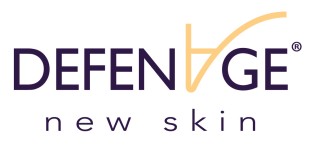
Bakuchiol Vs. Retinol: Which Is Better?
Retinol is a well-loved anti-aging ingredient that has been used for many decades. It provides undeniably good results, but is it really the best option for younger-looking skin? Or are there better retinol alternatives?
One such alternative is bakuchiol, a trendy ingredient that has made headlines in the beauty industry. Often referred to as “natural retinol,” bakuchiol has been spotted in night creams, oils, and serums and claims to have the same effects as retinol. With all the buzz around this hot product, it has many people wondering — does bakuchiol work? Should I leave my retinol products behind and turn to bakuchiol serums and creams? Here’s everything you need to know.
Contents:
What Are Retinoids?
Bakuchiol is known as a plant-based retinol alternative. It is an oil harvested from an Indian plant called babshi and is known to provide many of the same benefits as retinol. Just like retinol, bakuchiol promotes collagen production to promote smooth, younger-looking skin. It also triggers skin cell repair to smooth fine lines and wrinkles.
Benefits of Retinol
Retinol is the most common over-the-counter (OTC) retinoid. While it’s not as strong as prescription retinoids, it’s the strongest OTC version of retinoids available. Retinol is often used to treat skin issues such as:
- Fine lines and wrinkles
- Hyperpigmentation
- Sun damage such as sun spots
- Acne and acne scars
- Uneven skin texture
Side Effects of Retinol
Retinol can cause inflammation and may be irritating for people with sensitive skin. It also makes your skin more sensitive to UV rays and should be used with the addition of a strict SPF routine. The most common side effects of retinol are:
- Dry and irritated skin
- Itchiness
- Peeling skin
- Redness
Although not as common, some people may experience side effects such as:
- Eczema or acne flare ups
- Skin discoloration
- Stinging
- Swelling
- Blistering
What Is Bakuchiol?
Bakuchiol is known as a plant-based retinol alternative. It is an oil harvested from an Indian plant called babshi and is known to provide many of the same benefits as retinol. Just like retinol, bakuchiol promotes collagen production to promote smooth, younger-looking skin. It also triggers skin cell repair to smooth fine lines and wrinkles.
Benefits of Bakuchiol
As mentioned above, bakuchiol triggers collagen production in the skin similarly to retinol. It provides many of the same benefits of retinol without the harsh side effects. Some benefits of bakuchiol include:
- Good for all skin types, including sensitive skin
- Gentler on the skin than retinol
- Reduces the appearance of fine lines, wrinkles, and age spots
- Doesn’t cause dryness or skin irritation with regular use
- Doesn’t make skin sensitive to the sun
Side Effects of Bakuchiol
Because it’s a newer ingredient in the skin care world, there’s not very much definitive research about its potential risks. However, so far there have been no reported adverse effects. One downside of bakuchiol is that it is not as potent as retinol and may require more use to see similar results.
Differences Between Retinol vs. Bakuchiol
Bakuchiol and retinol are structurally different. Bakuchiol is made naturally from the babchi plant while retinol is made in a lab. As such, bakuchiol is always vegan while some retinoids are made from animal byproducts. Although they have different chemical structures, they both affect cell pathways by inducing similar gene expressions. Bakuchiol is less powerful than retinol but is better for sensitive skin types.
Is Bakuchiol as Effective as Retinol?
In a 2017 bakuchiol vs. retinol study, 44 participants were asked to apply either a bakuchiol serum twice daily or a retinol cream once daily for 12 weeks. The results showed that both bakuchiol and retinol significantly reduced wrinkles, fine lines, and hyperpigmentation. However, participants who used retinol reported more stinging and facial skin scaling. This same study told us that both bakuchiol and retinol induced similar gene expression that lead to improved cutaneous photodamage, which is a big aging contributor. It was shown that they both activate collagen production and similarly affect cell pathways. Although bakuchiol and retinol have similar results, the study showed that bakuchiol doesn’t use the same retinoic acid receptors as retinol.
Is Bakuchiol Better Than Retinol?
Determining which product is better ultimately depends on individual skin needs. Retinol is a stronger ingredient that may be better suited for those who have stubborn complexion issues. However, some people may not benefit from stronger formulas. People with sensitive skin should avoid retinol as it is likely to cause redness and irritation. It can also cause eczema flare ups for those already suffering from the skin condition.
Bakuchiol is also best for vegans and vegetarians as it doesn’t contain any animal products. Some retinol products are made with retinoids harvested from produce like carrots, cantaloupe, and squash. However, many other retinoids are made from animal byproducts. There’s no definitive way to know that the OTC retinol you buy contains only plant-based ingredients without proper labels. However, bakuchiol comes from the babchi plant, so it is always guaranteed to be free from animal byproducts.
Because retinol increases UV sensitivity and makes you more susceptible to sun damage, bakuchiol may be a safer choice in the summer months. Retinol may be better used in the winter months when we spend less time outdoors. If you plan to spend a large amount of time outside, bakuchiol may be a better option unless you can keep up with a very strict sunscreen regimen.
If you’re a first-time user deciding between bakuchiol or retinol, bakuchiol is a good place to start. When you’re unsure how your skin will react to products, start with a gentler option to test how your skin reacts. After using bakuchiol for a few months, you can determine if a stronger retinol treatment is needed.
When it comes down to it, retinol and bakuchiol have similar effects, but they each come with their own advantages and disadvantages. Retinol is a more potent ingredient and may offer quicker benefits, but it’s not suited for all skin types. Bakuchiol is good for sensitive skin but may produce slower results. Whether you choose retinol or a retinol alternative like bakuchiol depends on your specific skin type and needs.
Defensins: Another Retinol Alternative
While bakuchiol is the most well-known retinol alternative, there are others worth looking into. At DefenAge, we provide a defensins-based 8-in-1 BioSerum that dermatologists and aesthetic professionals have named as a perfect retinol alternative. Visit our website to learn more about our iconic 8-in-1 BioSerum and how you can get younger-looking skin without harmful side effects.

